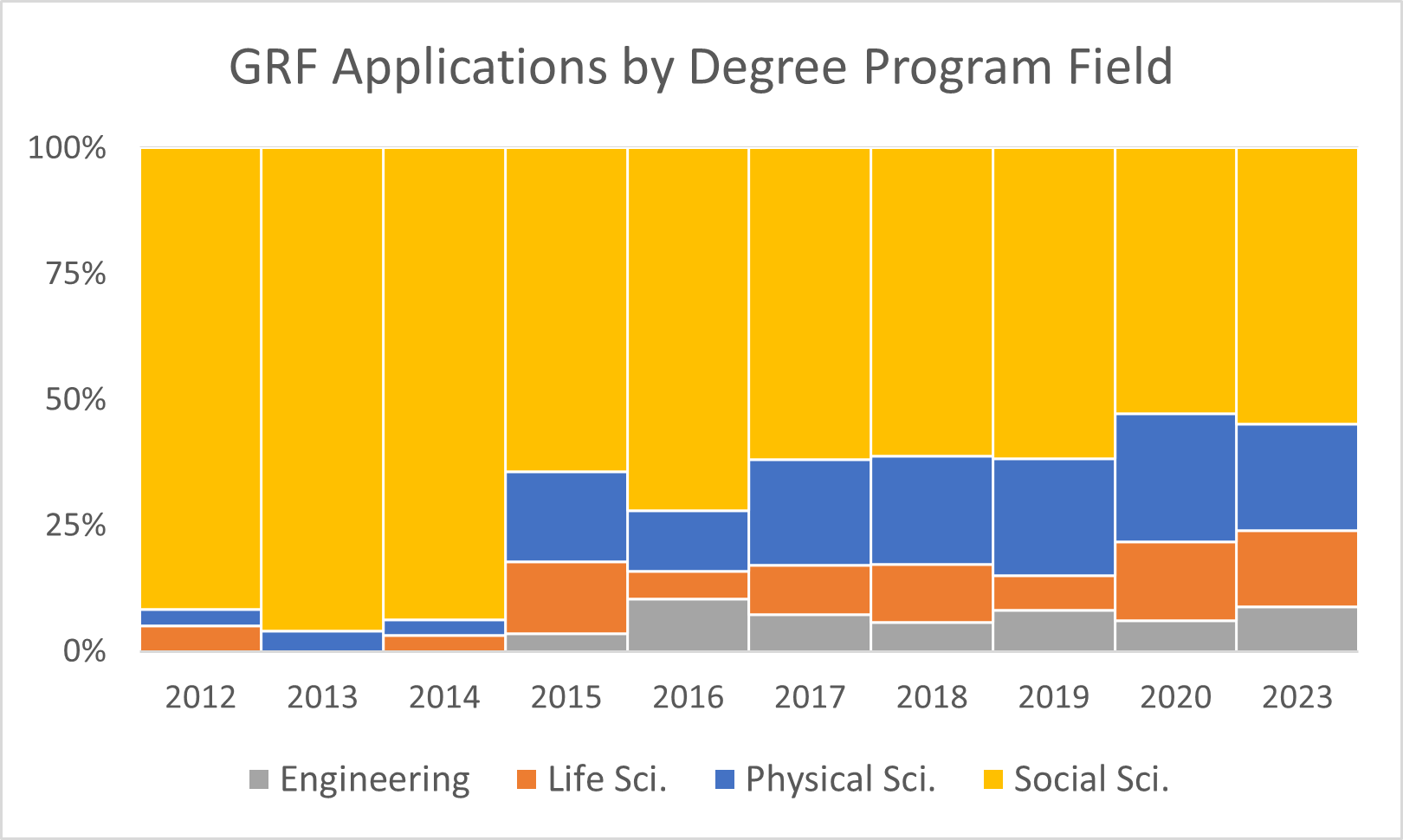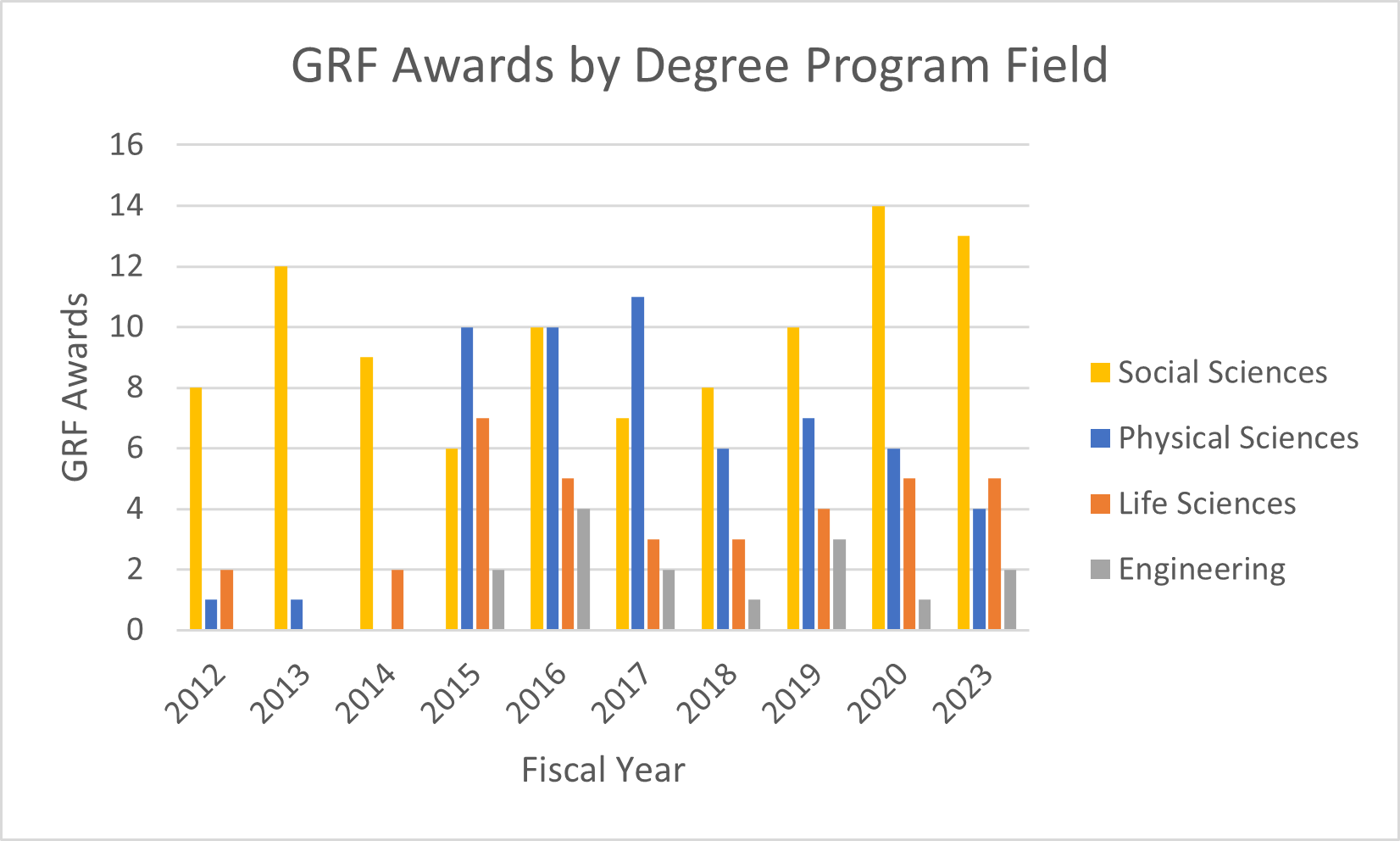NIJ’s Graduate Research Fellowship (GRF) program provides grants to accredited academic institutions to support outstanding doctoral students whose dissertation research is relevant to criminal and/or juvenile justice. Applicant academic institutions are eligible to apply if:
- The student is currently enrolled in a Ph.D. program at an accredited U.S. institution.
- The student’s proposed dissertation research has demonstrable relevance to preventing and controlling crime, advancing knowledge of victimization and effective victim services, or ensuring the fair and impartial administration of criminal or juvenile justice in the United States.
The ultimate goal of the program is to increase the pool of researchers engaged in problems relevant to criminal or juvenile justice policy and practice in the United States. This is consistent with recent reports emphasizing the crucial role STEM education and workforce development plays in the long-term technological innovation and competitiveness of the United States.[1, 2] It also directly responds to recommendations from blue-ribbon panel reports on NIJ programs.[3, 4] Finally, it aligns with the goals of NIJ Strategic Plans.[5] This all highlights the cornerstone role that the development of young researchers plays in a healthy scientific community.
Graduate Research Fellowship Applicant Pool
GRF is one of NIJ’s longest running programs. In fiscal year 2014, to remedy low participation from students in the natural sciences and engineering, a separate GRF-STEM program was instituted and promoted. By fiscal year 2020, participation from the hard sciences was on par with the social sciences and all applicants were again invited under a single GRF funding opportunity.
In 2023, the 146 applications that moved forward to peer review were organized into 11 panels based on topic area. All panels comprised academic faculty with experience mentoring graduate students.
- Anthropology
- Biology
- Chemistry
- Corrections
- Courts
- Crime Prevention
- Computer Science and Engineering
- General
- Juvenile
- Policing
- Violence and Victimization
Graduate Research Fellowship Awards
Since 2012, NIJ has awarded 204 fellows at 72 unique institutions. In recent years, along with a more balanced applicant pool, the distribution of awards across fields of study has become more equitable.



